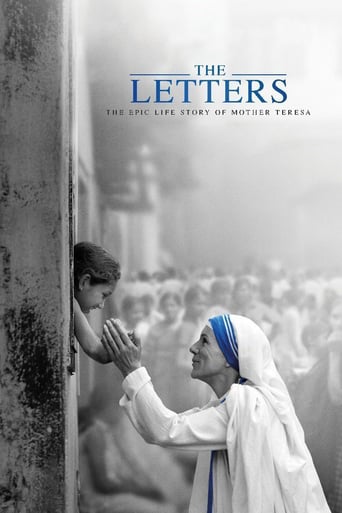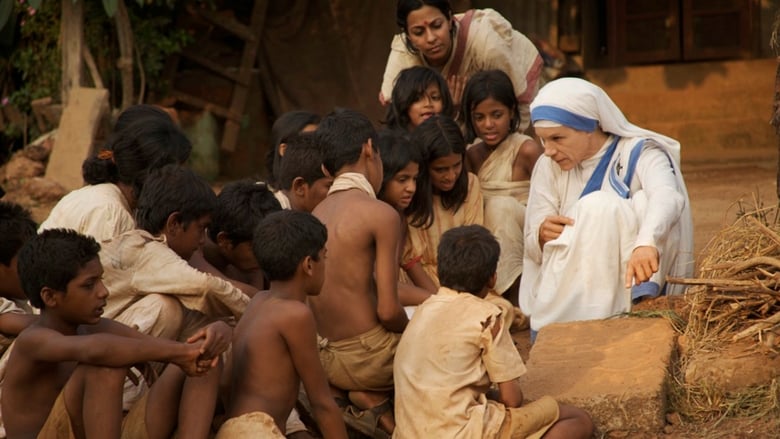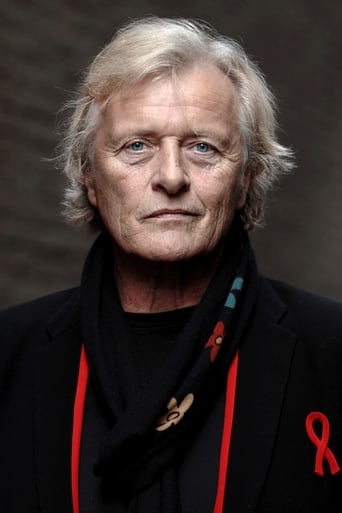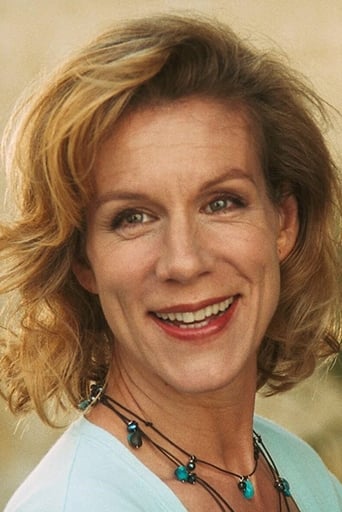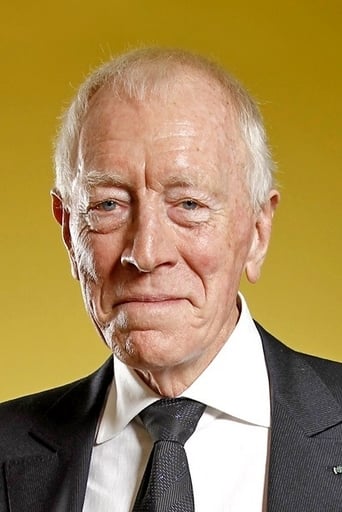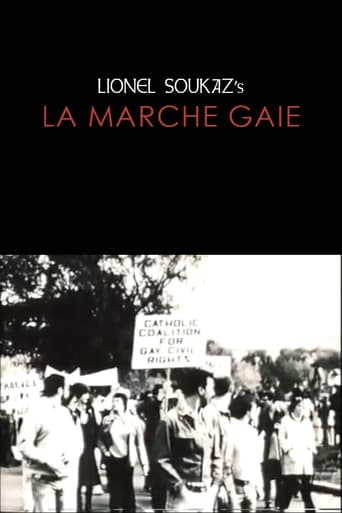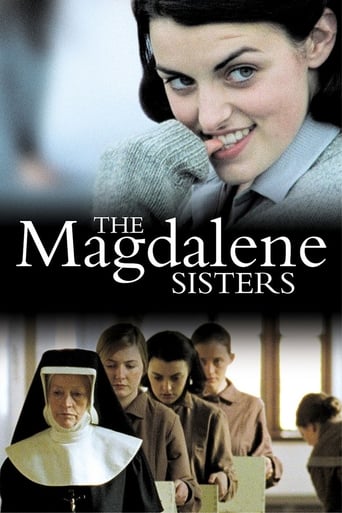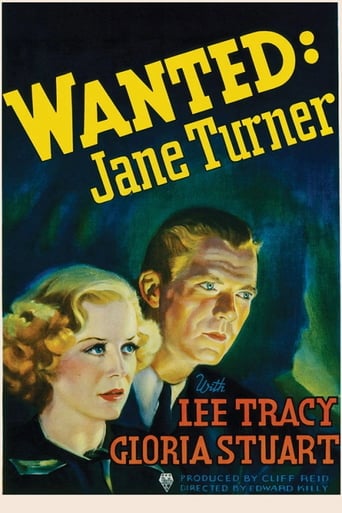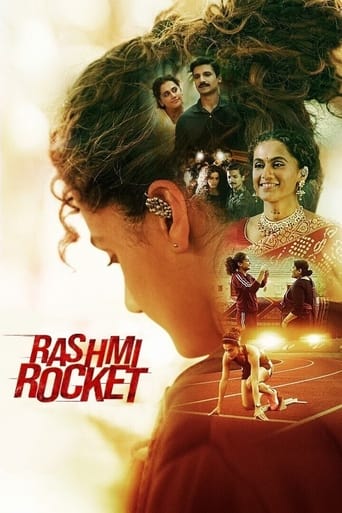The Letters (2014)
Mother Teresa, recipient of the Nobel Peace Prize, is considered one of the greatest humanitarians of modern times. Her selfless commitment changed hearts, lives and inspired millions throughout the world. The Letters, as told through personal letters she wrote over the last 40 years of her life, reveal a troubled and vulnerable women who grew to feel an isolation and an abandonment by God.
Watch Trailer
Cast


Similar titles
Reviews
This train wreck of a "movie" is the apparent darker side of Mother Teresa's story about secret letters that she wrote. These letters reveal a darker side to Teresa, stating that she had struggles with her faith, yet even in her hard times she stayed in the faith and continued to put others above herself. At Least that's what the audience is told, the plot of the movie, the most interesting aspect of this adaptation isn't shown or expanded upon, instead it is told to us multiple times throughout the movie all in different ways that reveal nothing new. Since the movie tries to tell Mother Teresa's story in a new perspective while trying to be "safe" the movie falls flat on it's face becoming lifeless, bland, and uninformative. I went into the movie knowing just as much as I did leaving it, Mother Teresa was a nun who helped the untouchables, nothing more nothing less, everything that is more interesting about her story is either told to the audience by a confusing narration or given to the audience on tacked on credit facts that are supposed to tie up the movies loose ends.I give The Letters a very low C, almost to the point of F, but since the movie was so safe it deserves a C. The movie begins on a scene where a photo of mother Teresa heals a woman of a tumor, this event technically did happen but no one can be sure that it was Teresa's photo. It's a poor scene to start the movie on because it set's mother Teresa up to be a supernatural force of God, which she is not! It was also a poor choice to open on because the event is filled with so much uncertainty that it's more probable than not that it didn't happen, thus starting the movie with possible inaccuracies. Another thing the movie blundered on was Mother Teresa's religion, throughout the movie she is called a Christian woman, yet she was a catholic nun. Given the benefit of the doubt Christianity is a term that is notably used for multiple religions, like the Catholic people. Yet the rest of the movie is very safe, it doesn't take any risks or any controversial aspects of Teresa's life, instead they made a very easy movie that panders to the average viewer who doesn't know better than.The reason I specifically wanted to give this movie a F was because how terribly represented Mother Teresa was, she was stripped of all likability and all visible motivation for what she was doing, it also ignored key factors of her life while somehow including them. For example the darkness that was continually spoken of, they mention it multiple times throughout the movie, yet not once did we see Mother Teresa actually convey or experience any signs of deeper darkness or doubt, instead she smiles and goes through the motion. The introduction of her character and her will to go help people was so underdeveloped that I didn't realize that she was Mother Teresa until multiple scenes later in the movie. Yet the reason I didn't give the movie an F is because the movie followed the most minimum basic beats of Mother Teresa's life, only showing what they wanted to and being, for the most part, accurate. Yet the absence of many of the other important aspects of her life make this movie a slightly biased representation of her life. This may sound like nitpicking but I truly believe what I listed above hinders the historical accuracy of this movie. This is not a movie I would recommend to view for a class, for if you are studying Mother Teresa this movie will not introduce anything new, and it may hinder what knowledge you already have.
I was able to view this movie on Netflix streaming. Judging from the few reviews and few votes not many have seen it, compared to popular blockbusters.Many will not like it because they detest anything with a religious theme. But if we look past the fact that she was a Catholic nun, and discover what was in her heart, how can anyone not love her vocation?This film is presented as flashbacks starting in 1946 when Sister Mary Theresa was a nun and teacher in the convent in India. The story shown to us comes from the letters she wrote, which came to light only in the late 1990s as her life was being examined for possible sainthood.As she looks out her window she sees suffering in the streets. In 1946 on a train ride she says she received a message from God to serve the poor and outcast. She successfully petitioned the Archbishop and the Vatican for permission to work among the poor. She eventually petitioned for and was granted a new congregation and a new religious order. She became Mother Theresa, she trained many followers, she received the Nobel Peace Prize in 1979.Juliet Stevenson is so good as Mother Teresa I soon put it past me that she was just an actress and I was able to fully appreciate who this Saint was.Edit: On Sept 4, 2016 the Pope declared Mother Teresa has been elevated to Sainthood.
I have no idea why this beautiful movie is rated so low in the IMDb rating system, obviously a lot of people didn't care for it. I am surprised. First, I am not a Catholic but I am a religious person. I believe this is a beautiful and touching biopic about a kind and good woman who sacrificed her life in service to the poor. Although she had doubts and struggled with depression, she soldiered on bringing relief to the one of the world's most retched group – India's untouchables. A humble woman, Mother Teresa, ably played by Juliet Stevenson is traced through a 50-year career of kindness and compassion. I am nonplussed, what is there not to like here? I loved this poignant movie and urge those of you with hearts to see it too.
What makes a person great? Great accomplishments? Selflessness? Motivation and determination? Not allowing greatness to get in the way of further accomplishments? In the case of Mother Teresa of Calcutta check, check, check, check. The docudrama "The Letters" (PG, 1:54) portrays a great woman and shows us what made her great, but, almost as importantly, shows us what made her human.The film uses Mother Teresa's own words in the letters she wrote to tell her story in the context of the Catholic Church's process of examining her life for beatification and possible canonization. It turns out that the ethnic Albanian woman who was born Anjezë Gonxhe Bojaxhiu, chose to become Sister Teresa and became world famous as Mother Teresa experienced intense loneliness and dealt with long-term doubts about the presence of God in her life. Even so, she managed to become the personification of love, compassion and selfless service and started a worldwide movement to help the disadvantaged.The letters provide the framework for the story when a priest named Benjamin Praggh (Rutger Hauer) travels to India to meet with Mother Teresa's long-time spiritual adviser, the elderly Father Celeste van Exem (Max von Sydow) and discusses her life. Father van Exem quotes from her letters throughout the film and ultimately gives Father Praggh five decades' worth of letters to aid in his investigation. The scenes in which the two priests talk (the weakest moments in an otherwise very strong film) are short, few and far between. This story is mainly told chronologically within extended flashbacks which vividly illustrate why the woman who wrote those letters was such a special and compelling character.Most of the movie focuses on less than seven years in Mother Teresa's nearly seventy-year-long ministry. In 1946, she was happily teaching privileged young Indian girls at the Loreto convent school in eastern Calcutta, but she becomes increasingly burdened by the extreme poverty that she regularly observes down in the streets literally right outside her classroom window. She felt she was honoring God's call to be become a nun at 18, but now she experiences what she describes as "a call within a call" to go into the slums of Calcutta and work to help that city's "poorest of the poor". Gaining permission to work outside the convent walls requires her to make her case to the convent's short-sighted Mother General (Mahabanoo Mody-Kotwal), who forwards it to the convent's priest, then the local bishop, who takes it to the Vatican, where it has to be considered by none other than Pope Pius XII.The granting of Sister Teresa's initial request (for up to one year) was the beginning of the nun's legendary work ministering to, in her words "the hungry, the naked, the homeless, the crippled, the blind, the lepers, all those people who feel unwanted, unloved, uncared for". She started with nothing but her compassion. She wandered the Calcutta slums helping those she came across who would accept her aid. She had to battle the local Hindu population's hesitation to trust an English-speaking woman in the newly independent nation and the animosity from those who were sure that she was there to convert people to Catholicism. She also had to navigate the many rules and restrictions of the Catholic Church and deal with the opposition of some who felt that her apparent calling was contrary to the vows she had taken years earlier. Still, in spite of all this, she persevered and left a lasting legacy."The Letters" is a surprisingly powerful movie. Its particular strength is the performance of British actress Juliet Stevenson in the main role which she embodies with remarkable authenticity – physically, emotionally and spiritually. You don't have to be a spiritual person to appreciate her performance or this film. In the movie, just as in Mother Teresa's life, her faith was the background of her story and the foundation of her work, but her innate goodness as a person is what shines most brightly. The film's sets and script are simple, but they seem appropriate for the simplicity of this story. The portrayal of Mother Teresa's personal and spiritual struggles and triumphs are entertaining, touching and compelling. The real Mother Teresa wanted her letters destroyed upon her death for fear that people would "think more of me and less of Jesus." Either way, her letters have survived to further inspire others – and produce one h*** of a movie. In conclusion, to sum up "The Letters": I have a letter for you: "A".

